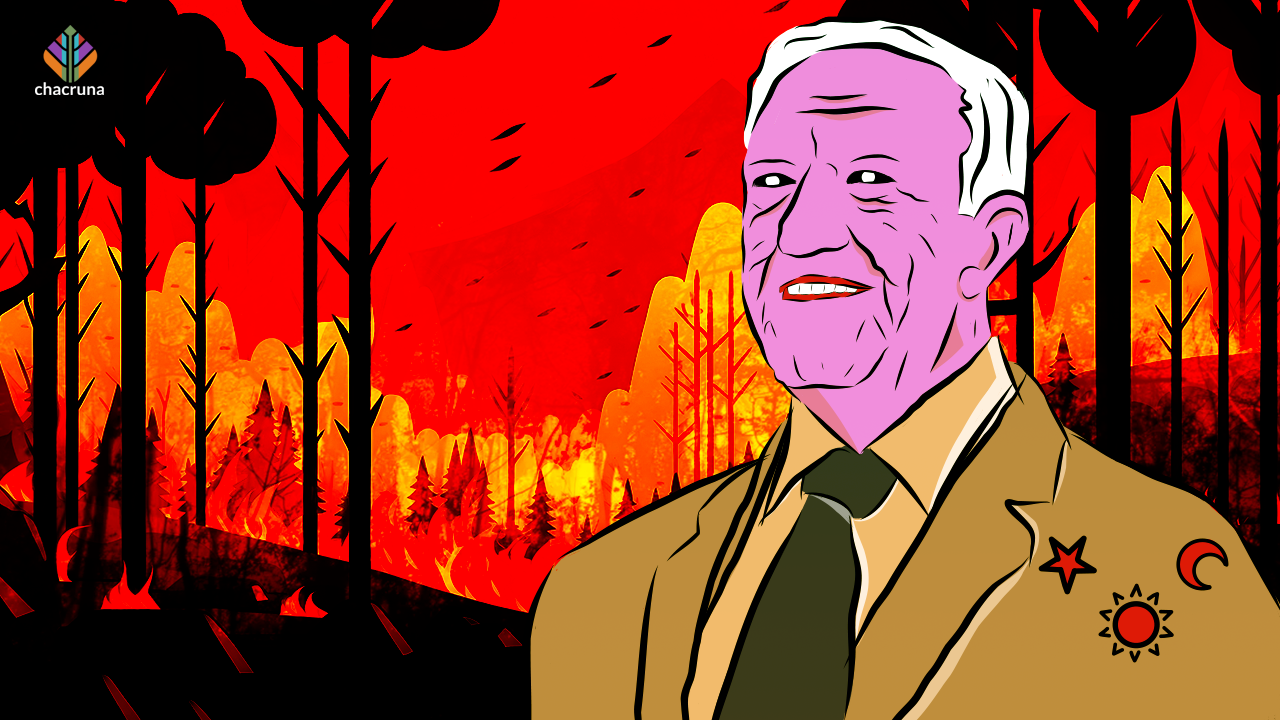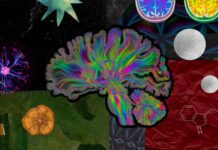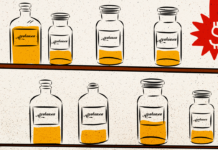- Anvisa Bans the Selling and Advertising of Ayahuasca in Brazil - February 24, 2025
- Ex-“The Voice” Singer Reports Homophobia in UDV, a Religion that Uses Ayahuasca - January 31, 2025
- Bad Trip: União do Vegetal (UDV) Ties to Far-Right Bolsonarism Resurface - January 2, 2025
Documents on the UDV reveal the ayahuasca group’s alignment with radical Bolsonarism
The controversial links between leaders of the União do Vegetal (UDV), one of the principal ayahuasca groups in Brazil, and the far-right Bolsonaro movement have resurfaced with the Federal Police’s Operation Contragolpe. As the investigation has probed deeper, documents exposing the active participation of the institution’s leaders in the planned coup have begun to circulate on social media. The involvement of the UDV’s upper echelon suggests that the ritual use of ayahuasca, as practiced by the religious organization, has been distorted for political indoctrination purposes.
An important leader of the group, Raimundo Monteiro de Souza, left his fingerprints and CPF on a document in which he openly incited the Brazilian Armed Forces to violently overthrow the democratic rule of law. As exclusively reported by the blog Psicodelicamente, hosted on the website of the weekly newsmagazine CartaCapital, the institution’s leader urged military commanders to curb the advance of “communism” in the country.
Monteiro’s manifesto-style letter, addressed to the “senior military commanders,” calls for an intervention to save Brazil from the red menace. In the letter, he warns: “If this outcry is not heeded, the reputation built over so many decades by this admirable institution will rapidly fall apart.” Although circulating in the darker corners of the internet since 2022, the call for a military coup has resurfaced, reigniting internal divisions within the UDV in the wake of the recent Federal Police operation. The investigation unveiled a military plot to assassinate President Lula, Vice President Geraldo Alckmin, and Supreme Court Justice Alexandre de Moraes.
Raimundo Monteiro de Souza is viewed by many as the successor to José Gabriel da Costa (1922–1971), the founder of the religious group. In an interview with TVE Bahia, he once referred to himself as the “UDV pope.” “Monteiro is certainly not just anyone,” observes João Ribeiro, a former UDV member expelled for criticizing the organization. “He occupies the highest echelon of the institution, as one of the ‘masters’ of memory,” he explains. “They’re just like Jesus’s disciples within the institution.” In the UDV, leaders are referred to as “masters.”
According to other members of the UDV interviewed for the report, Monteiro allegedly used his leadership position to rally followers in support of anti-democratic causes. “He wanted to mobilize an army of hoasqueiros (as the group’s followers are called) to support the coup, which fortunately failed,” noted one source who wished to remain anonymous.
It is not difficult to confirm the possible involvement of other members of the religious group’s leadership in the coup plot. Some Bolsonaro-aligned leaders of the UDV produced and widely disseminated material incriminating themselves. Photos and screenshots of online posts, published and later deleted, show various UDV leaders participating in the encampments outside military barracks urging a “military intervention” in Brazil – a euphemism for the return to dictatorship. Among them are Clóvis Cavalieri, a retired Air Force colonel and the UDV’s director from 2015 to 2018, along with Raimundo Monteiro himself. “Convinced the coup would succeed and confident in their impunity, they exposed their actions publicly,” notes João Ribeiro, a former member of the UDV.
Another name to emerge prominently is that of Francisco Joffily, from the Núcleo Vento Divino, based in Lauro de Freitas, Bahia, known as one of the group’s “coup-plotting masters.” “He felt emboldened to show his face at terrorist actions after Master Monteiro’s declaration of support for Bolsonaro,” Ribeiro adds.
In a video posted by Francisco Joffily at the time, the UDV leader expressed pride in taking part in the vandalization of the buildings of the Federal Executive, Legislative Assembly and Supreme Court on January 8, 2023, in Brasília, referring to the events as a “historic day.”
In a video posted by him at the time, the UDV leader expressed pride in taking part in the vandalization of the buildings of the Federal Executive, Legislative Assembly and Supreme Court on January 8, 2023, in Brasília, referring to the events as a “historic day.” With the fallout from the case, Joffily was temporarily removed from the group’s cadre of masters. However, after the current general master Jair Gabriel da Costa, assumed office in 2023, Joffily was quickly reinstated to the UDV directorate.
A source that preferred to remain anonymous suggested that Joffily’s swift return may have been linked to internal pressures. “He knows who funded the trips to Brasília,” the source claimed, hinting that the Bahian leader holds information about influential masters who financed the travel to the Brazilian capital. If confirmed, these allegations could expose a financial support network for controversial political activities within the UDV. This suspicion also raises questions on just how far the Bolsonarist leaders influence the institution’s decisions.
Ribeiro suspects that, faced with potential legal ramifications, some leaders are now trying to cover up their involvement in the attempted coup. The former UDV follower’s suspicion is based on a new video of Joffily that began circulating on social media in which he appears disguised as a “tourist” in Brasília.
Previously, Joffily had claimed he was in the city providing “journalistic coverage” of the attempted coup, although on his LinkedIn he presents himself as a coach and trader. Many crucial details about the alleged “tourist trip” remain unclear, Ribeiro argues, with the trip coinciding with the attacks on the headquarters of the executive, legislative and judiciary in Brasília in January 2023. “He needs to disclose the names of the ‘tourists’ on the bus, how many of the group’s masters participated in the excursion, and who paid for the accommodation and meals.”
In the 2018 elections, the UDV shed its pretense of political neutrality. Several leaders openly supported Jair Bolsonaro and embraced the far-right agenda
The influence of Bolsonarism within the UDV is not new. The first signs emerged during the 2018 elections, acquiring momentum until culminating in the participation of leaders in anti-democratic actions. However, the groundwork for this political alignment had long been established in the group’s own religious doctrine. “Since its inception during the dictatorship, the UDV has flirted with militarism,” observes anthropologist Beatriz Labate, who has spent decades researching the expansion of ayahuasca groups in Brazil and around the world. “The group has always had conservative tendencies, emphasizing the family, the man as the ultimate authority, order, hierarchy, discipline, work and the status quo.”
Today head of the Chacruna Institute, based in San Francisco, USA, the researcher emphasizes that the UDV is not a single homogenous entity. “While one faction, made up of senior masters from northern Brazil, applauds authoritarianism, another more urban faction, consisting of liberal professionals, artists and left-wing intellectuals, strongly rejects it.” Labate points out, however, that support for Bolsonarism has fractured the religion’s unity. “The UDV was expanding significantly, even managing to bring back former dissidents, but now its membership is shrinking.” Estimates suggest that the internal crisis caused by the UDV’s alignment with the far-right has led to around 2,000 members leaving.
Ritual ayahuasca use has been distorted for political indoctrination purposes, a former member denounced to the Federal Prosecutor’s Office (MPF)
In January 2023, the lawyer Alexandre de Oliveira Rodrigues, a member of the group for 20 years, filed a request with the Federal Prosecutor’s Office (MPF) to include the UDV in the investigation into the actions surrounding the attempted coup of January 8. The request was based on a report to which CartaCapital had access. The document submitted to the MPF alleges that “UDV leaders used ayahuasca to indoctrinate followers and incite them to adopt extremist and anti-democratic ideologies.” The report details accounts of hate speech against the outcome of the 2022 presidential election, along with far-right narratives and calls for military intervention following Jair Bolsonaro’s defeat.
The request calls on the MPF to investigate possible crimes committed by the UDV and its leaders in connection with the events of January 8, including potential violations of current laws controlling the ritual use of ayahuasca, particularly involving children. “The decontextualized use of the drink constitutes a device for ideological alienation and indoctrination. This warrants further investigation into the matter,” Oliveira argues.
Founded in the Amazon rainforest in 1961, the UDV is a self-described Christian religion that makes ritualistic use of ayahuasca.
Founded in the Amazon rainforest in 1961, the UDV is a self-described Christian religion that makes ritualistic use of ayahuasca. The psychedelic drink, known to its followers as chá hoasca or chá vegetal, is prepared from two Amazonian plants: the shrub Psychotria viridis and the vine Banisteriopsis caapi. Utilized for centuries by diverse Indigenous peoples of Amazonia, this mixture has also been consumed for decades by Brazilian religious groups such as the UDV, Santo Daime, Barquinha and Alto Santo. Neoshamanic groups, particularly in urban centers, have also adopted its use. Scientific research has made some progress in demonstrating its potential for treating depression, anxiety and substance abuse.
The UDV has over 200 centers spread across all the Brazilian states, as well as eight other countries: the United States, Portugal, Spain, Switzerland, the United Kingdom, the Netherlands, Australia and Peru. The institution has always tried to maintain an image of political neutrality, which many have found unconvincing. It was during the 2018 election that the alignment of some of its members with the far right became more concrete, with influential figures in the organization openly declaring support for the then candidate Jair Bolsonaro.
The businessman Luís Felipe Belmonte, a former UDV leader and ally of Bolsonaro, played a crucial role in the political coordination of the new federal administration. As vice president of Aliança pelo Brasil, the party that the former president attempted to establish, Belmonte helped consolidate the organization’s support for Bolsonarism. His influence went beyond party politics, also affecting the religious group’s internal dynamics where conservative rhetoric gained prominence.
From 2018, the alignment of UDV leaders with Bolsonarism intensified the antidemocratic, anti-environmentalist, misogynistic, homophobic and denialist rhetoric within the institution. Although these narratives already existed within the group, they acquired fresh momentum and continue to spread under the leadership of the current general master, Jair Gabriel, a Bolsonaro supporter and son of the UDV’s founder.
The UDV now faces a double challenge: addressing the legal and moral consequences of the actions of its members while attempting to maintain its reputation as an organization focused on spirituality.
The UDV now faces a double challenge: addressing the legal and moral consequences of the actions of its members while attempting to maintain its reputation as an organization focused on spirituality. The revelations from Operation Contragolpe may force the group to reevaluate its political stance and reinforce its purported commitment to neutrality. The case also casts a light on how religious movements can be co-opted by political interests, an increasingly pertinent issue in a Brazil marked by polarization and the use of religious faith as a means for political mobilization.
CartaCapital contacted the UDV for clarification regarding the allegations of the political alignment of its leaders with extremist and anti-democratic ideologies, as well as to the MPF for information on the progress of the request for inclusion of the religious group in the investigation into the events of January 8. No response was received from either party, however.
Art by Mulinga.
Note: Carlos Minuano has been writing about psychedelics for over two decades and is author of the blog Psicodelicamente, hosted on the CartaCapital website. This article was originally published in Portuguese in issue no. 1340 of CartaCapital on December 5, 2024.
Take a minute to browse our stock:
Did you enjoy reading this article?
Please support Chacruna's work by donating to us. We are an independent organization and we offer free education and advocacy for psychedelic plant medicines. We are a team of dedicated volunteers!
Can you help Chacruna advance cultural understanding around these substances?














